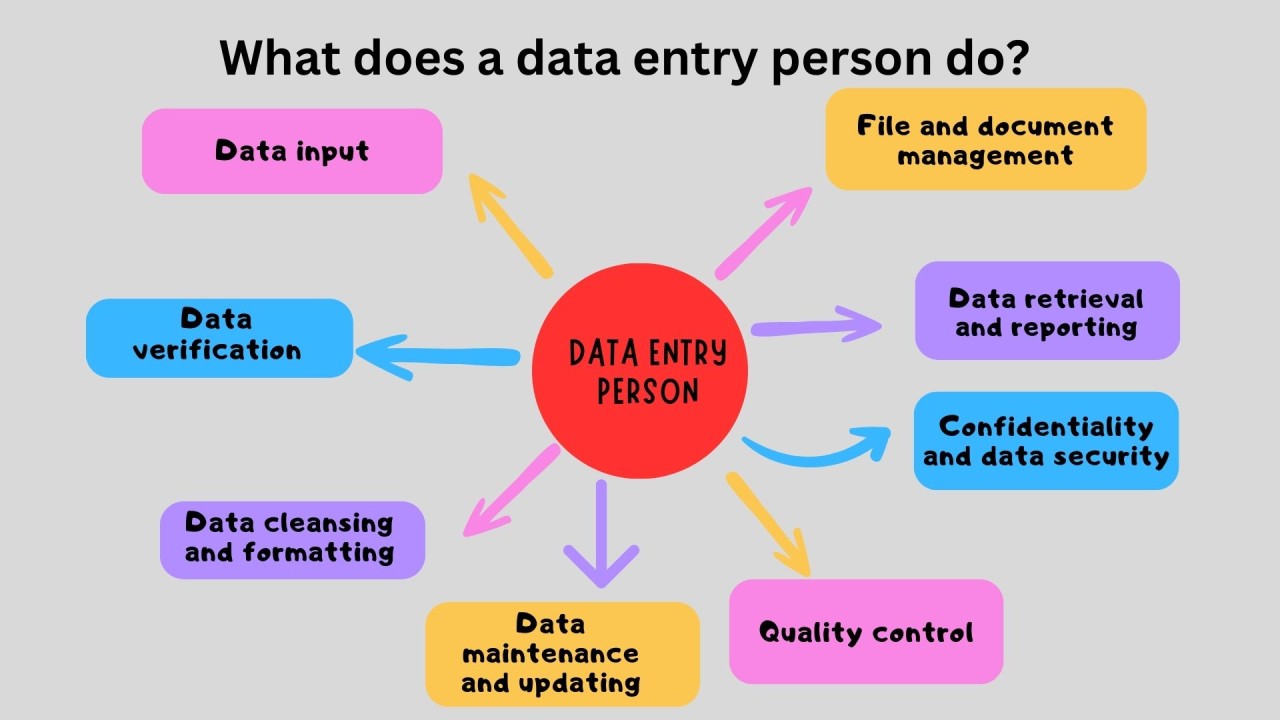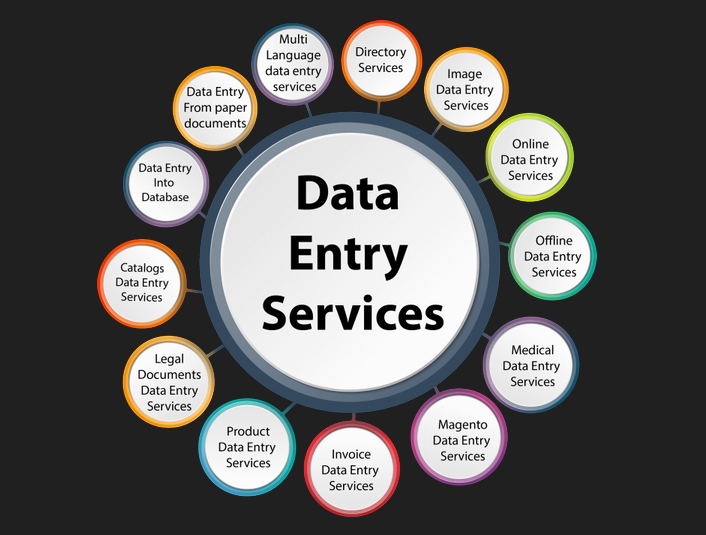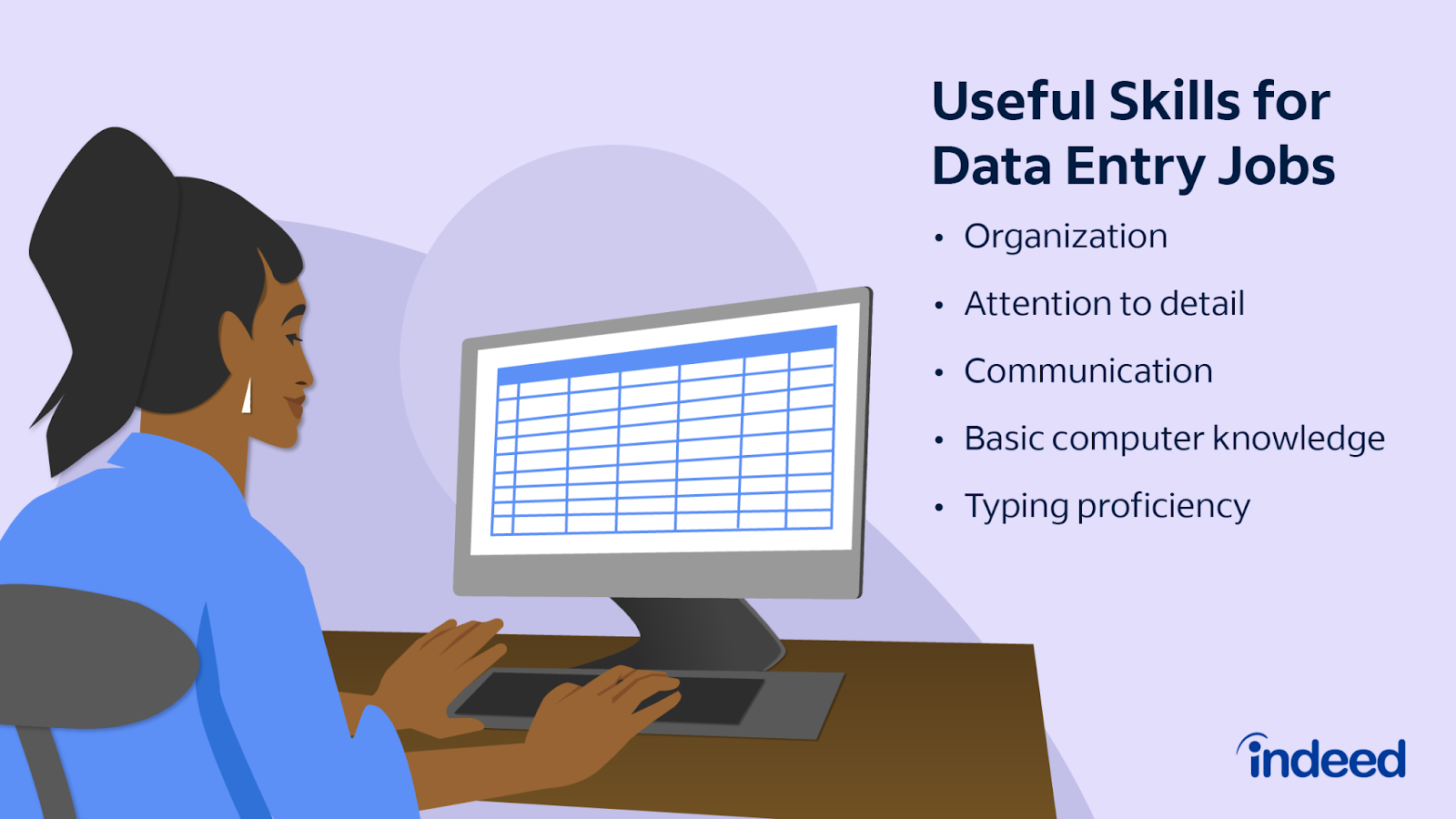Data has become the foundation of any organization in the digital age, and efficient data management is essential to day-to-day business operations. This procedure requires data input, which is now more accessible to a wider audience thanks to the advent of freelancing. For those looking for remote job options, freelance data entry is a feasible career path that offers flexibility, autonomy, and the chance to work with customers worldwide.
A growing number of people seeking flexibility, remote work options, and the capacity to manage their personal and professional lives are choosing careers in freelance data entry. This article explores the most popular freelance data entry jobs currently open, including information on how to apply, what skills are needed, and job-finding sites.
The best freelance data entry jobs, the qualifications required to succeed in this industry, and practical methods for obtaining these positions are all covered in this article. This book will give you useful information and tools regardless of your level of expertise, whether you’re a novice trying to get your foot in the door or an established professional trying to grow your clientele.
What is Data Entry?
Employees in the data entry sector add, update, and validate electronic data. Throughout a workday, many firms require personnel to transcribe conference notes, enter raw data into databases, and enter sales numbers into computerized forms.

A data entry job comprises working as a handler of various electronic data formats and operating systems—such as keyboards—that experts use to input and modify data. This industry offers a variety of jobs, such as word processor, coder, transcriptionist, and typewriter.
Freelance Data Entry Jobs: What Are They?
Using software or a spreadsheet to input data with various clients on a contract basis is the main emphasis of freelance data entry employment. Depending on your clients, your tasks may differ significantly, but typing and data input are always part of the job description. The majority of independent data entry workers are situated remotely. Using Excel or another data visualization or organization software application, you may generate reports based on raw data. Certain businesses could need you to know how to deal with a particular database system, like Oracle, or transcribe audio.
Data Entry Job Types
There are many different job types in the vast subject of data entry, each serving a different industry and needing a unique set of skills. You may choose the positions that best suit your skills and interests by being aware of the many kinds of data entry jobs that are out there. These are a few of the most typical kinds:

Online Data Entry
Entering data into databases or web-based systems is known as online data entry. This might involve managing online forms, inputting customer information into a CRM system, or updating product information on e-commerce websites. Because more and more businesses are depending on cloud-based systems, this type of data input is common.
Important Assignments:
- data entry into web-based platforms.
- Updating records and maintaining databases.
- Managing product listings for e-commerce.
Sectors: Real estate, marketing, e-commerce
Offline Data Entry
Working with data in a non-online setting is necessary for offline data entry activities, which include completing spreadsheets, converting paper-based data into digital formats, and entering data into local databases. Applications such as Google Sheets and Microsoft Excel are frequently used for this kind of work.
Important Assignments:
- converting data from paper-based sources to digital ones.
- updating spreadsheets or local databases.
- managing data processing operations that are not web-based.
Sectors: Healthcare, Education, Legal Services
Data Cleansing
Data cleaning, often referred to as data scrubbing, is the process of finding and fixing mistakes, inconsistencies, and inaccuracies in databases. It guarantees that the information is correct, trustworthy, and prepared for analysis. Maintaining data quality requires this kind of labor, especially in sectors where accurate information is essential.
Important Assignments:
- locating redundant records and eliminating them.
- fixing discrepancies and mistakes in the data.
- bringing data types into uniformity.
Sectors: Financial Services, Market Research, Healthcare
Conversion of Data
Transforming data from one format to another is known as data conversion. This might include reformatting data to make it compatible with various software programs, converting PDF files to Word documents, or scanning handwritten notes into digital text. Proficiency in several file formats and the capacity to preserve data integrity throughout conversion are prerequisites.
Important Assignments:
- data conversion across several file types.
- maintaining the integrity of the data while it is being converted.
- Reformatting data to ensure compatibility with software.
Sectors: Publishing, Legal Services, Archives and Libraries
Transcription Services
Transcribing spoken words into written text is necessary for transcription services. This can entail typing up dictations from doctors, meetings, podcasts, and interviews. For this kind of data entry work, accuracy and quick typing rates are crucial since the spoken word must be captured precisely as it is stated.
Important Assignments:
- typing the spoken words after listening to audio recordings.
- correcting transcriptions to ensure correctness and clarity.
- formatting transcriptions per the requirements of the customer.
Sectors: Media and Entertainment, Legal Services. Healthcare
Data Verification
Cross-referencing data with other sources is a necessary step in data verification to make sure it is accurate and comprehensive. This procedure is essential for preserving data integrity, particularly in fields where accuracy is critical. Experts in data verification frequently examine vast amounts of data to look for mistakes and anomalies.
Important Assignments:
- cross-referencing information from outside sources.
- Ensuring completeness and correctness of data.
- resolving any inconsistencies discovered during verification.
Sectors: Finance, Government, Healthcare
Survey and Form Data Entry
Entering data into digital formats from surveys, questionnaires, and other forms is known as survey and form data entry. Either physical labor or sophisticated software that automates some steps can be used to accomplish this. It is frequently used in customer feedback analysis and market research.
Important Assignments:
- entering data into databases from forms and surveys.
- ensuring accurate classification of the data.
- reporting through the analysis of survey data.
Sectors: Education, Market Research, and Customer Service
There are differences in the needs and skill sets of each sort of data entry job. There are many options available, regardless of your interests: basic typing duties, more analytical work like data mining, or specialized fields like medical data entry. Your chances of success in the freelance data entry industry will eventually increase if you can better match your talents and preferences with the opportunities that fit you by knowing these different work kinds.
Skills Required for Freelance Data Entry Jobs
Data is crucial in various industries, including healthcare, retail, finance, accounting, and government institutions. A data entry professional collects and enters data into a system or database, updating it from paper documentation or transcribing audio or video files. While not typically requiring specialization, employers prefer candidates with a high school diploma or bachelor’s degree. Proficiency in typing, detail, Microsoft Excel, and working under deadlines is essential for a successful career in data entry.

- Typing speed: Data entry jobs require typing large amounts of information under tight deadlines, and candidates must have a fast typing speed and good typing accuracy. A minimum typing speed of 40 words per minute (WPM) is required for standard efficiency, with some employers requiring a speed of 70 to 90 WPM for higher-paying jobs. To improve typing skills, use all 10 fingers while typing, focus on the screen, use shortcuts, and practice regularly. For example, use the TAB or ENTER buttons to move to the next line in Excel. Regular typing practice of 15 to 20 minutes per day can help build muscle memory and improve typing speed and accuracy.
- Typing accuracy: Data entry is crucial for business decisions and should be done accurately and without mistakes. Two common mistakes are transcription errors and transposition errors. Understanding the importance of data and taking breaks before proofreading can help avoid mistakes. Improving typing speed can free up time for corrections. Asking for more time can help avoid errors and decrease accuracy. Maintaining a sound working environment can also help reduce distractions and errors. By understanding the consequences of data entry mistakes, taking breaks, proofreading, and asking for more time, data entry clerks can ensure accurate analysis and strong business decisions.
- Communication skills: A successful data entry clerk requires strong written and verbal communication skills to accurately comprehend, identify, and note key data points. They should also be able to interact with customers and communicate effectively with managers and team members. To improve communication skills, actively listen, focus on detail, and be succinct in your writing. Practice makes good listening skills more natural, and avoid long, winding sentences in your communication. A high level of written communication is required to enter data without spelling and grammatical errors.
- Attention to detail: Data entry professionals must have excellent attention to detail to minimize errors and ensure accurate data outcomes. Improving typing speed and double-checking work efficiently can help correct errors. Identifying critical details and catching missed mistakes through thorough checks can help ensure the accuracy of data entry.
- Ability to research and collect data: Data jobs often require collecting and conducting initial research, ranging from laboratory experiments to customer research. To improve research and data collection skills, talk to colleagues, ask superiors, and research online resources. These methods help define the research aim, identify reliable sources, find appropriate people, gather relevant information, record data using tools, and conduct basic data analysis. This will help improve efficiency and effectiveness in the job.
- Organizational skills: Strong organizational skills are crucial for data collection, as they enable finding relevant facts and taking logical notes. Clear and concise data entry is essential to avoid repetition. Time management and organizational skills are interconnected, with prioritizing, planning, and executing tasks effectively. Breaking down large goals into smaller, easier tasks can improve organizational skills and workload management. This approach ensures efficient completion and meeting deadlines.
- Summarization skills: Detail-oriented individuals possess a golden skill in summarization, which involves distilling vast amounts of information into a concise form without losing its essence. This skill is crucial in data entry, including creating reports and trend analysis. To improve, practice summarizing long articles or big data sets, consider taking summarization courses and showcase this skill when applying for jobs.
Is Data Entry In Demand?
The data business is expanding steadily, and several sectors have filled open positions for data entry clerks and are actively seeking new hires. In other words, it indicates that now is the ideal moment to equip yourself with the necessary data entry abilities so that your CV will be taken seriously. Additionally, this will make your resume more effective. However, you’ll also see that you’re unique from other people. As a result, you will have a great opportunity to seize employment chances in the data sector.

What qualities go into being a successful data entry specialist? The phrase “data specialist” is more general, and it requires a wide range of skills, knowledge, and responsibilities to be considered a proficient data input specialist. They assist companies in reducing operational expenses and the amount of paperwork they must handle.
Data entry jobs include a wide range of tasks, including editing documents, scanning documents, updating client accounts, and more. Everything here is dependent on the type of work.
How to Land Freelance Data Entry Jobs
Gaining freelance data entry work necessitates a blend of abilities, planning, and perseverance. Although there is competition in the freelancing industry, you may succeed in data entry with the correct strategy. We’ll go over practical methods to help you get freelance data entry work below.

Build a Strong Profile on Freelance Platforms
To secure freelance data entry jobs, create a compelling profile on platforms like Upwork, Fiverr, Freelancer, or Guru. This serves as your digital resume and portfolio, showcasing your skills, experience, and professional background. Key tips include crafting a professional headline, writing a compelling summary, highlighting your background, and using relevant tools or software. Highlight your relevant experience, including accuracy rates, turnaround times, and improvements in data management. Upload a portfolio of your work, including screenshots or testimonials, if applicable. Finally, use a professional photo to add credibility to your profile.
Leverage Your Network
Networking is a crucial tool in the freelance world, as it allows you to share your availability for data entry work with your professional and personal networks. A former colleague or friend may need your help. Key tips include keeping your LinkedIn profile updated, actively engaging with your network, attending networking events, and using word of mouth. Attending local business events or online webinars can help you meet potential clients and fellow freelancers who might refer you.
Target Specific Niches
Specializing in a specific niche, such as data entry for healthcare, e-commerce, or finance, can set you apart from competitors and attract clients seeking specialized knowledge. To succeed, research industry needs, invest time in developing specific skills or tools, and highlight your expertise in your profile, proposals, and marketing materials. This will help you command higher rates and attract clients who need specialized knowledge. Investing in online courses, certifications, or experience in your chosen niche will also help you stand out.
Write Winning Proposals: A well-written proposal is crucial for securing freelance data entry jobs. It should demonstrate your understanding of the project, showcase your skills, and convince the client that you are the right candidate. To avoid generic proposals, tailor each one to the specific job by addressing the client’s needs and explaining your skills and experience. Be concise and clear, outlining your approach, tools, and expected timeline. Include a call to action, encouraging the client to take the next step, such as scheduling a call, asking questions, or hiring you.
Top Resources for Jobs Seeking Freelance Data Entry
It might be difficult to find freelancing data entry work, particularly in a crowded industry. But having access to the appropriate platforms might help you get steady employment. The top job boards for freelance data entry are listed below; each has special benefits and features.

Upwork
Upwork is a popular global freelance platform offering diverse job opportunities, including data entry work. Its large client base and diverse postings make it an ideal starting point for both beginners and experienced freelancers. Key features include diverse job listings, client ratings, advanced search tools, and an escrow payment system. Upwork allows freelancers to build a reputation based on performance, leading to more job offers and higher pay rates. It also features a secure payment system, holding funds in escrow until the project is completed to the client’s satisfaction. However, Upwork charges a service fee on earnings, ranging from 5% to 20%, and is highly competitive, especially for beginners.
Fiverr
Fiverr is a popular freelance platform where freelancers can offer services, known as “gigs,” starting at $5. It allows users to set their rates and provide predefined services, with a Gig-Based System that will enable them to create gigs for clients to purchase directly. The platform offers various service tiers, including basic, standard, and premium packages, attracting a wider range of clients. Its global reach allows for collaboration with clients from around the world. Clients can post specific requests for custom offers. Fiverr offers flexibility in pricing and service packages, potential for upselling and repeat business, and no need to bid on jobs. However, it takes a 20% commission on earnings.
Freelancer.com
Freelancer.com is a well-established freelance platform offering a wide range of data entry jobs and a bidding system. It features contests for freelancers to compete for a fixed price and milestone payments for financial security. The platform offers diverse opportunities across various industries, allowing freelancers to build long-term relationships with clients. However, it charges fees for bidding and withdrawing funds and faces high competition, particularly for entry-level projects. Overall, Freelancer.com offers a diverse and secure freelance marketplace.
FlexJobs
FlexJobs is a job board that focuses on remote, part-time, freelance, and flexible jobs. It offers curated job listings, over 50 categories, and career resources like webinars, skills tests, and career coaching. The platform is ideal for freelancers who prefer remote work and offers a subscription fee for access to job listings. However, it has a smaller number of job postings compared to other platforms, making it less suitable for those seeking remote work opportunities.
Remote.co
Remote.co is a job board that focuses on remote work, offering a variety of freelance data entry jobs. It features high-quality listings, ensuring they are legitimate and free from scams. The platform offers various job categories, including data entry, and provides detailed company profiles for informed decision-making. However, it has a smaller selection of job postings and no bidding or gig-based system, making it less suitable for larger platforms. Overall, Remote.co is a great platform for freelancers looking to work from anywhere.
For people who have excellent attention to detail, time management abilities, and a desire to learn, freelance data entry offers a flexible and accessible career path. Since data entry services are in great demand across many industries, freelancers looking for consistent work may find it to be a realistic alternative.
You may establish a lucrative freelance data entry profession by learning about the many kinds of data entry tasks, developing the required abilities, and making use of the appropriate platforms. There are many options in this industry, whether you’re just starting or hoping to grow your current freelancing career.
Success in data entry demands commitment, professionalism, and a proactive attitude to attracting and keeping clients, just like in any other freelance employment. You may profit from working autonomously while yet making a significant contribution to the global operations of firms by putting the correct strategies in place.








